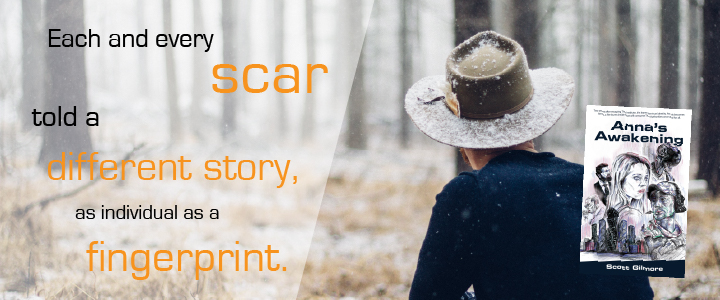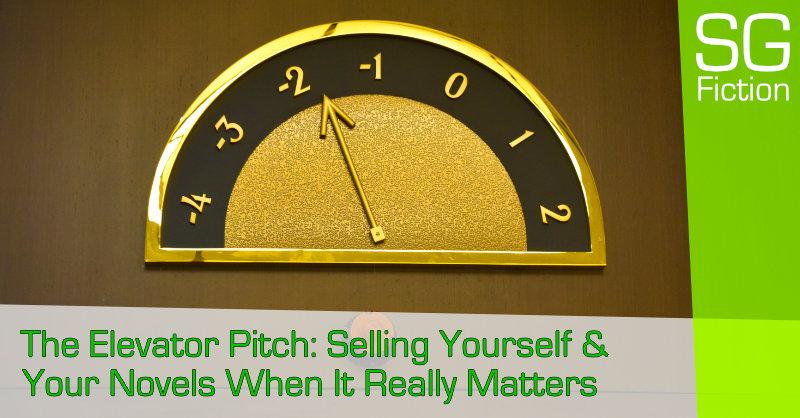‘The elevator pitch’ is often overused. Yet, knowing what makes your writing unique is vital. Learn to sell yourself & your novels when it really matters.
In this Elevator Pitch article, you will find information on the following areas:
- How an elevator pitch can be used for writers to assist with sharing who you are and what you write about, increasing your communication with others,
- How to compose an elevator pitch technique in a manner that you communicate the information about you that matters most,
- Why practising your delivery is paramount to coming across as confident and passionate as a writer.
Read the rest of the Elevator Pitch article and structure your approach when telling others who you are and what you write about.
As a fiction writer, you may not see the immediate value of composing the elevator pitch. There is a misconception out there that such strategies are for corporate professionals used to win over a client. However, this is not the case. Authors everywhere can use this approach to help develop a short, succinct explanation about what they do, what they write, and how it is relevant to those who may purchase a copy of your latest novel.
When we meet people for the first time, one of the first things they ask us is what we do for a living. Where many independent or self-published writers may not yet write professionally, it will usually come up that we write fiction, poetry, or drama. As millions of people would love to have written a book, such a statement sparks a level of intrigue in those to whom we speak.
Businesspeople around the world can naturally feel flustered at trying to explain what their product does or how they can help concisely increase a client’s profitability. Therefore, it is natural for us fiction authors to become tongue-tied as we try to explain the plot of our latest fiction novel in less than thirty seconds. Yet, we know how important it is to share our passion for writing and our talent as writers. If this is the case, why can’t we utilise the elevator pitch approach and prepare?
In this creative writing blog article, I will share how we can all take a leaf out of the books of business people and entrepreneurs around the world. We are going to learn the benefit of preparing our elevator pitch and how it can help us to share our work with those around us.

Why Do I Need An Elevator Pitch?
When you are a professional of any kind, you need to be able to let others know who you are and what you do. To keep it simple, it is the best way for you to introduce yourself to people confidently and concisely.
In a fast-paced world, we need to ensure our message is clear and is understood by those whom we talk to. Therefore, when you shake a person’s hand for the first time, you have to come across as someone who believes in themselves and can convey their thoughts easily.
As a writer, you will likely have to share information like:
- Who you are as a writer,
- What you have written in the past,
- Your future writing plans, and
- Concise synopses of both past works and current work in progress.
All of those examples listed above will likely require some form of planning. This means you ought to take some time to compose some writer versions of ‘the elevator pitch’, meaning you make an impression in the right way with a literary agent, colleague, or peer.
Composing Your Pitch
Online, there are many examples of how to compose the perfect elevator pitch. As with all of these ‘simple guides’, we need to take them with a pinch of salt. As writers, we aren’t always comfortable when selling ourselves or our work when it matters. In fact, many of us hide our light under a bushel if someone asks what we do or what our latest book is about.
With many elevator pitch examples coming across as corporate and ‘business-like’, I wanted to share some points that we can use as writers and that I use when meeting clients as a professional SEO copywriter. Let’s start learning how to promote ourselves and our work.
- Keep It Brief: Your elevator pitch shouldn’t be too long. Remember, those whom you meet are interested in your work or who you are as a writer, but they don’t want to hear your life’s story in one go. As you compile the core elements of the elevator pitch, try to keep your speech to between thirty and sixty seconds. That way, you will have ample time to share what makes you unique while holding the attention of your audience.
- Be Persuasive: When sharing what you do as a writer, it is vital that you remember that you are trying to sell yourself as a writing professional. As authors, the world is increasingly competitive, and there are fewer publishing deals to be had, especially in a post Covid-19 world. Therefore, you need to see your time with an agent or peer at a networking event as your shot to engage someone’s interest – make use of it.
- Share Your Goals: Those who are interested in you as a writer will want to learn about your goals for the future. Rather than being wrapped up in the present, you ought to share some ambition for what you would hope to achieve in the years to come. This shows that you aren’t willing to settle for what you have, but are eager to strive for more.
- Share Skills That Make You Unique: This is something that millions of people around the world struggle with. Looking deep within yourself and recognising the positive traits you have that are unique to you is difficult. Many writers will look at their work and see a world of would-haves and should-haves. This is not helpful when you are looking to sell yourself to someone you have just met. Strive to search for your unique skills and capabilities that will engage your audience and ensure they give you the deal over someone else. If you don’t sing your praises, no one else will.
- Understand Your Audience: In business, those who apply for jobs like to share jargon and terms that they hope will make them sound knowledgable within their profession. However, not everyone wants to feel intimidated by people who spout quotes from academics or terms like PPC and SEO. At times, you may alienate the person you are talking to and damage your chances of making a lasting impression. Gauging your audience is a skill that is important when it comes to sharing your elevator pitch. Ensure you keep it simple and remember the agent or colleague is interested in you as a person, not the jargon you can learn off to sound vastly intelligent.
There is no doubt that writers can use a series of elevator pitches to further their careers and professional development. Consider planning and preparing pitches for:
- Who you are as a writer and where you’re from,
- Who inspired you and how they impacted on your work,
- Your writing to date and how you feel about them as pieces,
- What your work in progress is and how you are excited to share it, and
- Where you see yourself in five years, both as a writer and a professional.
The elevator pitch is an essential way for writers of all ages and experience levels to share their interests and unique selling points in a manner that is familiar to them. We write stories and poems as a passion. Therefore, we need to find a love for sharing who we are and what we do as we would preparing for an author event or a reading.

The Importance Of Practice
Just as you would prepare and rehearse for an author appearance or a regular job interview, it is critical that you spend some time preparing the elevator pitch you have composed. You never know when someone may take an interest in you as a writer. Therefore, planning and practising the delivery of your pitch is key to ensuring that you speak fluidly and start to believe in your own words.
At times, we can feel embarrassed when openly going over such speeches, but there is no need. You are investing time in coaching your mind into presenting the best possible version of yourself to others. Why should you shy away from letting an agent, publisher, or reporter see you in the best possible light?
Many writers have ‘day jobs’ or busy households where it may not be possible to get time to rehearse how you sell your skills as a writer. This is understandable. However, finding the smallest of opportunities to rehearse even one elevator pitch can help take a bite-sized chunk out of that mountain before you.
As a teaching professional, online educator, and a website copywriter, I sometimes spend time in the car, travelling between meetings with clients. On these journeys, I take the time to rehearse the main elements of my presentation, who I am, and what I can offer a client. By taking even ten minutes to rehearse these pre-planned pitches, I set myself into a mentality where I am Scott Gilmore, the author and SEO copywriter. This technique is seen as a ‘comfort zone’ where I feel familiar and confident in the work I can deliver.
Practice is vital to train ourselves into believing whole-heartedly in who we are and what we do. Take the time to get to know yourself as a writer and deliver the best version of you possible. By doing so, you will stand a higher chance of securing that contract or landing that client.

The Elevator Pitch: The Takeaway
Writers are notorious for being shy, retiring types who like to let their work speak for itself. Unfortunately, books cannot always speak for you as a person. That responsibility is up to you as the author, poet, or screenwriter, especially if you hope to make money writing.
Utilise the points above and consider how you can best showcase your passion for writing and the love you have for the characters you create. Yes, a book cannot verbally speak for you, but you can shout about your skills as an author and the book you poured your heart and soul into. By investing in how you sell yourself and your novels when it really matters, you give yourself the best opportunity to shine.
The elevator pitch is a strategy we all need to apply in life as well as fiction authors or poets. By deconstructing yourself as an artist, you will be able to piece together several pitches that can sound more polished and confident. That way, you will always share a version of that writer you always hoped you would be.

